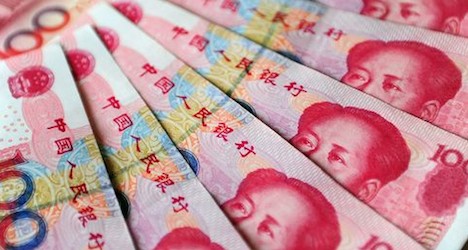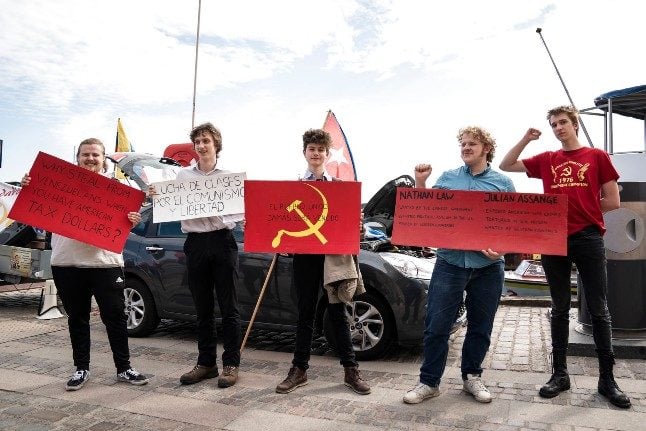The Swiss banking sector, facing the end of the secrecy that was once the bedrock of its business, is turning to China as it seeks new markets for the future.
The Swiss National Bank (SNB) said the pact will "promote the use of the renminbi by enterprises and financial institutions in their transactions and help facilitate bilateral trade and investment."
The Chinese bank meanwhile also agreed to extend a pilot scheme for foreign investors in Switzerland with a quota of 50 billion renminbi ($8 billion).
The SNB and PBOC had reached a bilateral swap agreement — a currency exchange deal — in July.
The Swiss Association of Bankers hailed the move and the quota saying the latter was "an important prerequisite for Swiss banks to be able to invest directly in renminbi denominated products and to participate in the renminbi capital market."
Between October 2010 and February last year, the renminbi climbed from 35th place to seventh place in the list of international currencies used globally for transactions, overtaking even the Swiss franc, the Swiss bankers' association said.
Meanwhile, at the World Economic Forum in Davos on Wednesday China's Premier Li Keqiang sought to allay fears over the Asian giant's growth outlook, telling business and government elites that the economy is not heading for a sharp slowdown.
A day after China posted the weakest growth in almost a quarter of a decade, Li vowed to push on with structural reforms which he said would deliver "quality growth" rather than just a high top-line figure.
"What I want to emphasize is that regional or systemic financial crises will not happen in China and that the Chinese economy will not head for a hard landing," Li said.
He added that if China did not lose sight of its planned reforms, its economic train "will not lose speed or momentum" but will "run smoother and stronger".
China's economy grew by 7.4 percent in 2014, slower than the 7.7 percent in 2013, raising concerns at a time when the global economy is looking to the Asian giant to maintain growth momentum.
The full-year result, the worst since 3.8 percent recorded in 1990, comes after one of the pillars of the global economy was hit by manufacturing and trade weakness as well as declining prices for real estate, which has hammered the key property sector.
In its latest World Economic Outlook update, released Tuesday, the International Monetary Fund projected even slower growth this year, of 6.8 percent.
African and Latin American commodity producers in particular are watching anxiously as slackening demand in China hurts their vital exports.
But Li argued that efforts made by the government to shift China's economy away from one that is investment and export driven towards greater consumption would ultimately make growth more sustainable for the world.



 Please whitelist us to continue reading.
Please whitelist us to continue reading.
Member comments